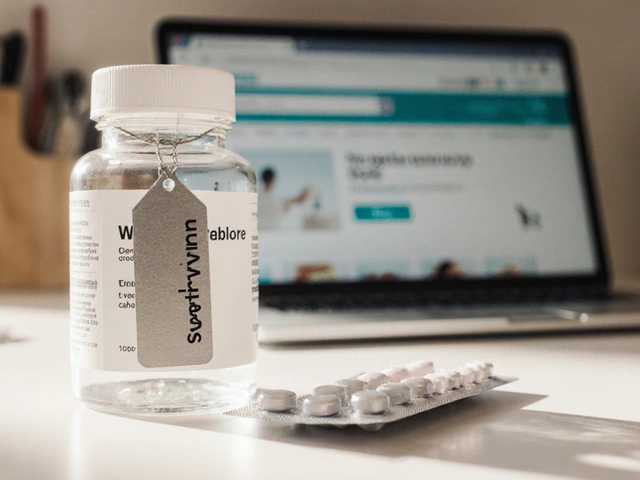Herbal Benefits: Practical Uses, Safety, and Top Remedies
Herbal benefits aren't magic — they are concentrated plant compounds that can help sleep, digestion, mood, and immune support when used correctly. Want real results? Use herbs with clear reasons, check interactions with meds, and pick quality products.
Start small. For everyday issues, try gentle herbs with evidence: chamomile for sleep and mild anxiety, peppermint for bloating and indigestion, and ginger for nausea. If you want immune support, look at elderberry or Iceland moss for cough relief — Iceland moss has polysaccharides and antioxidants studied for respiratory benefits. Sage supplements show promise for memory and cognitive boost in small trials. These are not miracle cures, but they can reduce symptoms and help you feel better faster.
How to use herbs safely
Always check interactions. Many herbs affect how prescription drugs work — for example, St. John's wort can lower levels of some heart and antidepressant drugs. Tell your doctor what you're taking, especially if you use blood thinners, diabetes meds, or antidepressants. Start with a low dose and test for allergies over a few days. If you plan to use an herb long-term, ask your clinician for monitoring (liver tests for some supplements, for instance).
Choosing quality and forms
Pick reputable brands that publish third-party testing results or certifications like USP or NSF. Compare forms: teas work well for calming effects (chamomile, sage), tinctures act faster and are easier to dose, and standardized extracts give predictable active compound levels. Read labels for concentration and avoid products with hidden fillers or multiple added ingredients you don't recognize. For fresh herbs, buy organic when possible to cut down on pesticide exposure.
Dosage matters. More isn't always better. Follow label directions or clinician advice. For example, typical chamomile tea is one cup before bed; standardized sage supplements used in trials often have specific milligram ranges. Track symptoms and side effects in a short journal so you can tell what helps and what doesn't.
When to avoid herbs: pregnancy, breastfeeding, young children, or severe liver/kidney disease need extra caution. Also avoid self-medicating for serious conditions where proven drugs are required — don't replace antibiotics or insulin with herbal remedies. Use herbs as complementary tools, not substitutes for urgent medical care.
If you like natural approaches, start with a clear goal (sleep, digestion, memory), choose one evidence-backed herb, and try a consistent routine for 2–6 weeks. Monitor results, discuss with your clinician, and switch only if you see no benefit or have side effects. Small, smart steps give the best chance of real herbal benefits without unnecessary risk.
Buying online? Stick to verified pharmacies or supplement retailers that list their lab tests and contact info. Avoid dramatic claims like 'cures' or 'quick fixes' and watch out for hidden dosages. If you're curious about a specific herb mentioned on this site—like sage or Iceland moss—read the article linked for dosing details and clinical references. When in doubt, ask a pharmacist; they often know herb-drug interactions and can point you to safe options.
The Mercury Herb dietary supplement has captured attention as a natural remedy with various potential benefits. This guide explores its origin, health advantages, and practical uses. Discover how Mercury Herb can be incorporated into your wellness routine. Learn about its historical significance and what science currently says. Plus, find helpful tips on selecting the right product for you.
View Details

